Ring frisbees banned on Norfolk beaches to protect seals
- Published
- comments
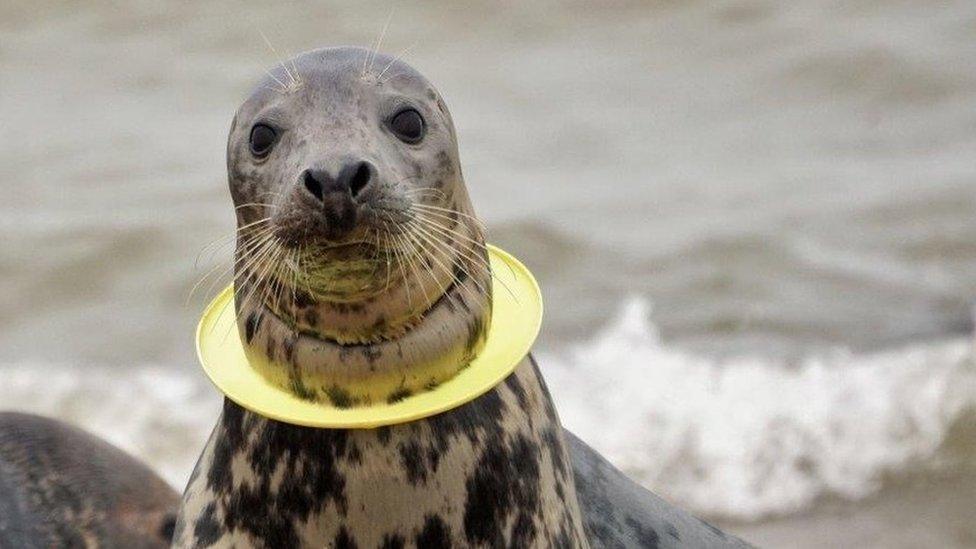
The seals get caught inside the frisbees and when they grow, it causes them pain
We all love mucking about at the beach, but one council in Norfolk has put restrictions on what you can use in order to protect the local wildlife.
Ring frisbees (ones that have a hole in the middle) will now be banned from beaches in Norfolk after at least three seals got the plastic toy stuck around their necks.
Some baby seals native to Horsey in Norfolk poked their heads through the discarded frisbees along the coast, and then weren't able to get them off. The rings then become very painful around the pups necks as the seals grew up and got bigger.
Following the efforts of local campaigners, King's Lynn and West Norfolk borough council voted to ban the ring frisbees on their beaches on 15 November.
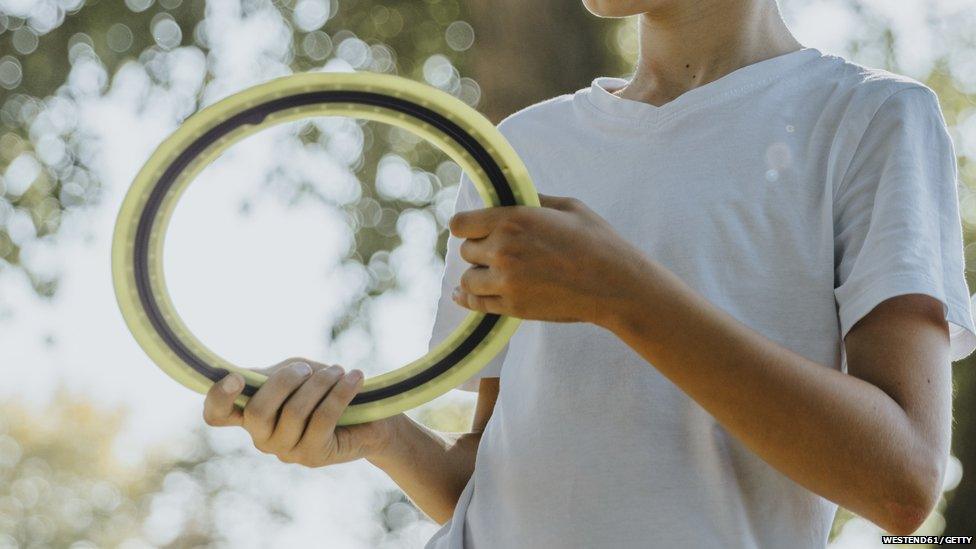
These types of frisbees cause the problems, as it's easy for a seal to get stuck in the hole
The charity Friends of Horsey Seals campaigned for the ban for three years, and told Newsround that they hoped King's Lynn and West Norfolk's decision would inspire other councils along the British coastline to do the same.
The Vice Chair, David Vyse, said: "We are all absolutely delighted and sincerely hope that the other coastal local authorities follow suit and do the same thing by banning them on the beaches.
"It is really just a question of educating the public to show how any discarded or lost flying ring can cause so much harm and injury to the seals."
If you see a seal on a beach, do not go near it, as it is most probably resting.
Never ever get close to a seal and keep all dogs on a lead.
Seals are very easily stressed and they come out on to the beach to rest and sleep and do not want to be disturbed.
If they pop their head up to look at you, then you are too close!
If you see a sick or injured seal ring the RSPCA.
Advice from Friends of Horsey Seals
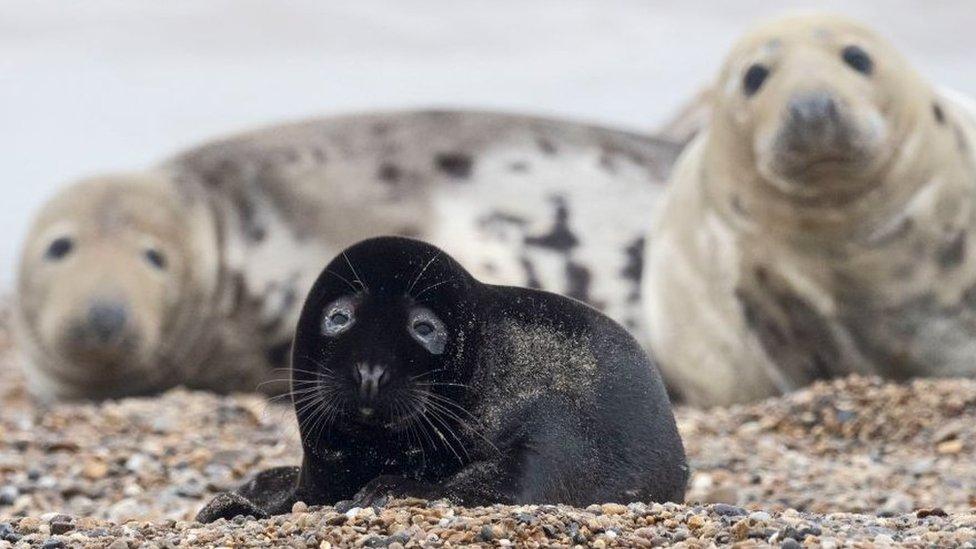
Adorable seals like these in Norfolk have been getting hurt by things people use to play with on the beach
He also explained to Newsround what they do when they find a trapped seal: "After rescue, we transport them to the RSPCA Wildlife Hospital at East Winch in Norfolk where the netting or flying rings are cut off. The seals are then carefully looked after and given painkillers, medication and salt baths daily.
"After about 3 months hospitalisation they are then released back into the sea."
The cabinet member for the environment at King's Lynn and West Norfolk council is Cllr Paul Kunest. He told Newsround: "Caring for our wildlife is very important to us. We have all seen pictures on the news of seals suffering when they have been stuck in rings. If we can put an end to this suffering by banning flying rings from our beaches then we are happy to do it."
- Published31 October 2021
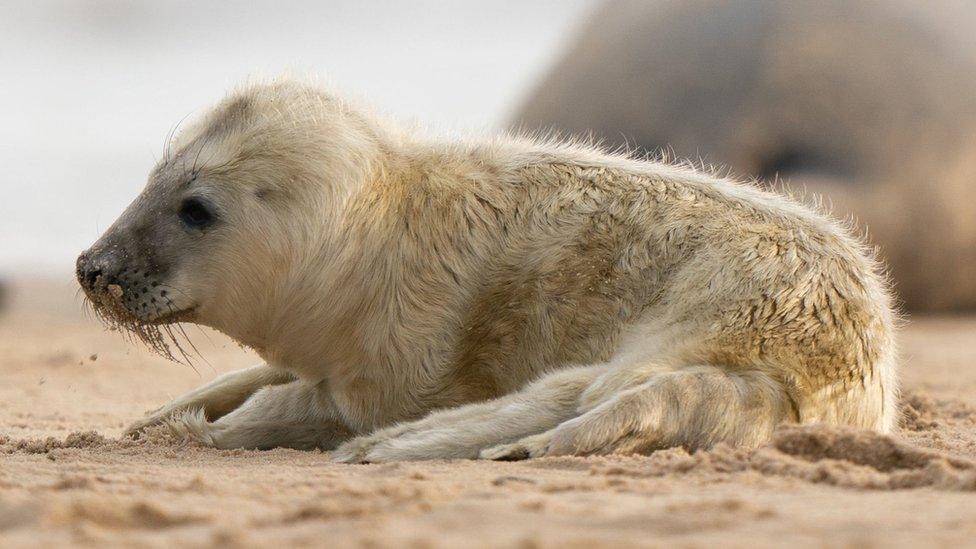
- Published8 June 2022
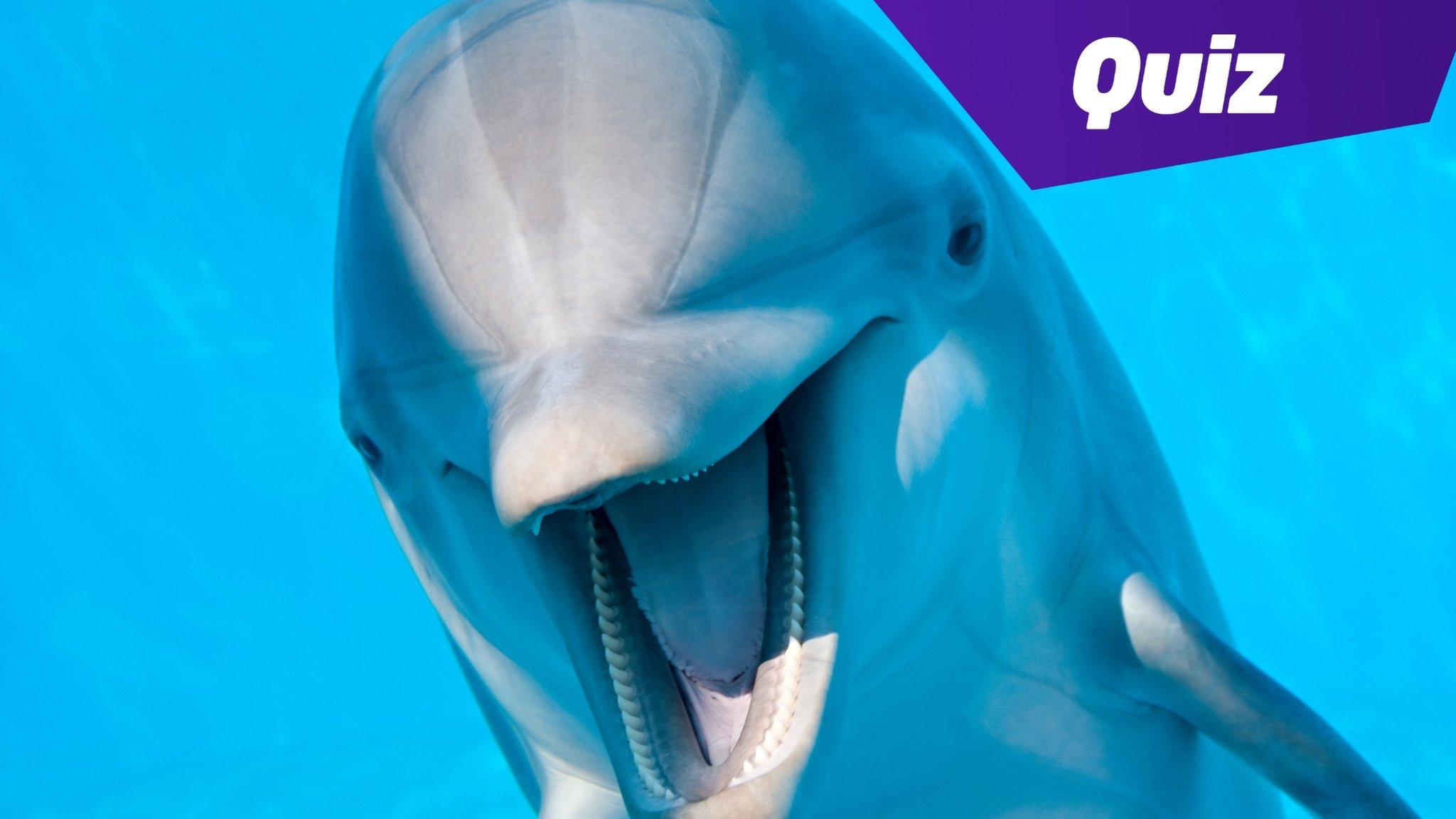
- Published20 January 2020

